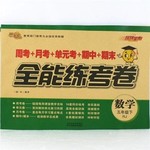题目内容
When you think of Beijing, the beautiful green waters and hills of Beihai Park and the grand and beautiful Forbidden City will come to your mind.
In recent years, groups of modern buildings and specially designed plazas have appeared on Beijing’s streets. Standing in the street, you can feel how Beijing has changed. But foreigners still like to go to the hutongs.
The word hutong comes from the Mongolian language. Hutongs come to Beijing more than 700 years ago. As time passed, the hutongs have remained, and have become an important part of the essence of Beijing.
Many foreigners, when they come to Beijing from their far countries, will go directly to visit the hutongs after setting down. They sit in the courtyards, chatting with the native Beijingers about neighbors and their life. It seems that through their chatting, they can find the true meaning of Chinese family life.
Waving good-bye, they have to leave the hutongs, and say goodbye to the families with whom they have chatted happily. But they don’t feel like leaving. The hutongs have brought great enjoyment to them.
Although every country has it own special cultural background, economic situation and level and feelings are similar. The hutong is a cultural symbol of this city. And the families of the hutongs are also unforgettable.
小题1:What do we often think of when we talk about Beijing?
小题2:Where do the foreigners still like to go although Beijing has changed a lot?
小题3:What do we know from the third paragraph ?
小题4:将文中划线部分译成汉语
小题5: The best title for the passage can be_______.
In recent years, groups of modern buildings and specially designed plazas have appeared on Beijing’s streets. Standing in the street, you can feel how Beijing has changed. But foreigners still like to go to the hutongs.
The word hutong comes from the Mongolian language. Hutongs come to Beijing more than 700 years ago. As time passed, the hutongs have remained, and have become an important part of the essence of Beijing.
Many foreigners, when they come to Beijing from their far countries, will go directly to visit the hutongs after setting down. They sit in the courtyards, chatting with the native Beijingers about neighbors and their life. It seems that through their chatting, they can find the true meaning of Chinese family life.
Waving good-bye, they have to leave the hutongs, and say goodbye to the families with whom they have chatted happily. But they don’t feel like leaving. The hutongs have brought great enjoyment to them.
Although every country has it own special cultural background, economic situation and level and feelings are similar. The hutong is a cultural symbol of this city. And the families of the hutongs are also unforgettable.
小题1:What do we often think of when we talk about Beijing?
小题2:Where do the foreigners still like to go although Beijing has changed a lot?
小题3:What do we know from the third paragraph ?
小题4:将文中划线部分译成汉语
小题5: The best title for the passage can be_______.
| A.How the word hutong comes from |
| B.Every country has it own special cultural background |
| C.The foreigners like to go to hutongs directly |
| D.Hutong and family |
小题1:Beihai Park and Forbidden City.
小题2:They still like to go to the hutongs.
小题3:The history of the word hutong./ something about the word hutong .
小题4:似乎通过他们的聊天,他们能发现中国家庭生活的真实意义
小题5:.D
试题分析:
小题1:本文的第一段提到当我们提到北京,我们会想到北海公园和紫荆城的美,故本题的答案
为Beihai Park and Forbidden City.
小题2:本文的第二段最后一句提到虽然北京发生了巨大的改变,但外国人仍然喜欢去胡同,故
本题的答案为 They still like to go to the hutongs.
小题3:本文第三段的主要含义是胡同一词主要来自于蒙古语,700多年前传到中国,胡同现今
仍然是北京的精髓之一,所以本段主要介绍的单词胡同的历史,故本题的答案为The history
of the word hutong.
小题4:it seems that可翻译成似乎……的含义,through翻译成通过的含义,the meaning of可翻译成……的含义,故文中划线的部分可翻译成“似乎通过他们的聊天,他们能发现中国家庭生活的真实意义”。
小题5:本文的最后一句含义是胡同的文化是一个城市的符号,胡同的家庭是让人难以忘怀,故本题的最佳标题可以为胡同和家庭,故本题选D。
点评:本文主要介绍了胡同的历史,胡同一词的由来,以及外国人到北京来,在胡同里生活的有关内容,主要强调胡同不仅是北京城的符号,而且能够让外国的游客在这里体会到家的感觉,阅读本文应该以胡同为关键词,通读全篇,才能更好的理解本文。

练习册系列答案
 全能练考卷系列答案
全能练考卷系列答案
相关题目